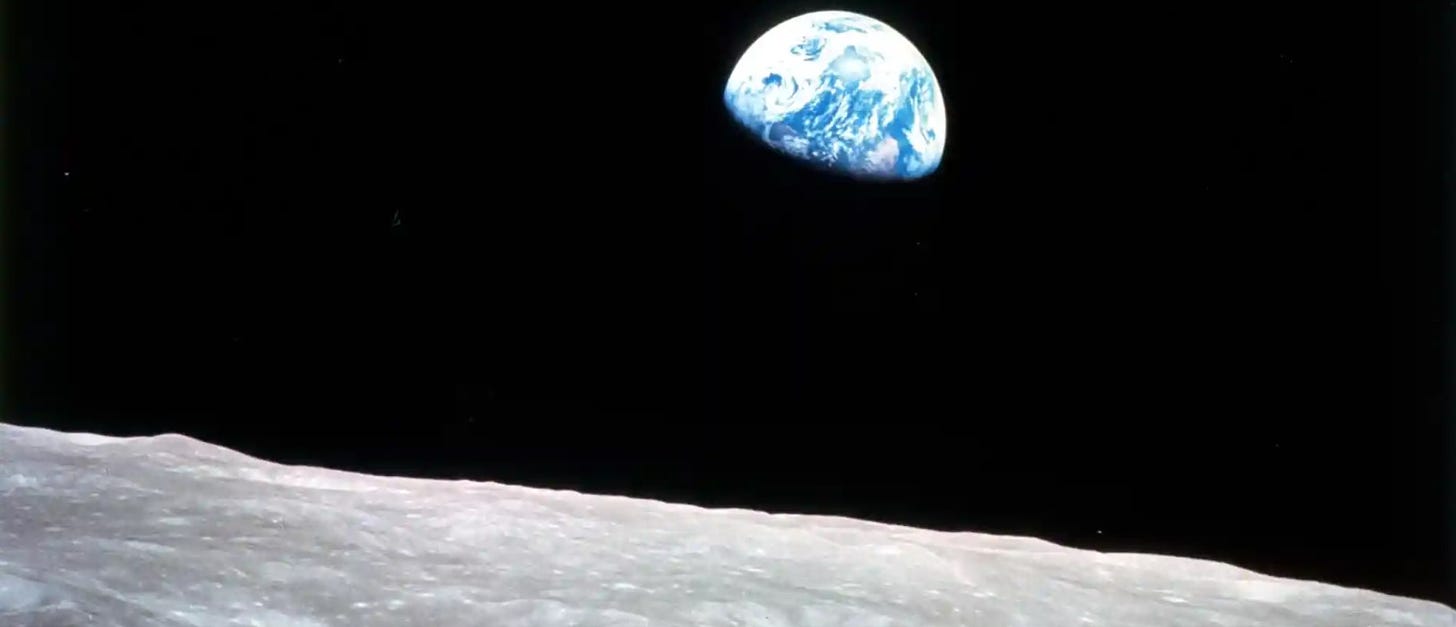Earthling: Is a longer war a wider war?
Plus: Moon militarization; Cold War clickbait; Has Ukraine already won? etc.
If you’re keeping track of ways a mishap could turn the Russia-Ukraine war into a wider war, you can add “rogue drone” to your list. This week an armed drone strayed from Ukrainian airspace, flew to NATO member Croatia (passing over NATO members Romania and Hungary en route), and detonated upon landing near a student dormitory in the capital, Zagreb. The explosion injured no one but damaged about 40 cars.
Croatian authorities said the drone could have belonged to either Russia or Ukraine. Some observers speculated that it was meant to fly to the Ukrainian city of Yarun rather than the district of Zagreb known as Jarun. (Beware autocorrect!)
Last week The Earthling worried that the massive flow of weapons entering Ukraine from the West could do what a massive influx of weapons did in Syria—extend and intensify a conflict, hugely increasing the human toll, without altering its outcome. This week’s rogue drone incident points to a second reason to worry about an extended conflict in Ukraine: Every day the war continues is a day when it could become a wider war—a NATO vs. Russia war and possibly even a nuclear war.
Granted, a rogue drone isn’t a likely World War III igniter; chances are that even if one killed people in a NATO country, there would be a pause, and some reflection, before responding. But you never know… And, anyway, there are other possible sparks. For example, a string of big Russian atrocities, amid battlefield setbacks for Ukraine, could make political support for a no-fly zone irresistible. (And a no-fly-zone is war between NATO and Russia.)
The generic point is just that every day brings a non-zero chance of something dramatic and escalatory happening. That’s the way war is: chaotic and unpredictable. And when you’re putting intense political pressure on one of the combatants via draconian sanctions, it may become even more so.
The impulse behind the West’s robust military support for Ukraine, and behind its sanctions on Russia, is understandable. When we see people do bad things—like invade countries and kill lots of innocent people—it’s natural to want not only to help the victims but to punish the criminals; the retributive instinct is a deeply embedded part of human nature.
Still, it is an instinct, one that natural selection designed for an environment very different from the one we live in. That’s one reason that obeying it uncritically is far from guaranteed to bring a morally satisfactory outcome. (A week after 9/11, back when ‘The Earthling’ was the name of a column I wrote for Slate, I made this very point by way of warning against an American overreaction that, needless to say, ensued.)
This unreliability of the retributive instinct is one reason we should demand that our political leaders justify, in pragmatic terms, policies that have a partly retributive impetus: Explain to us how this is supposed to work out in the end. Do we think Ukraine can actually win? Or are we trying to strengthen its hand at the negotiating table? Is that one goal of the sanctions, too? How long could the war go on if there’s no negotiated deal?
It may be that there are answers to these questions that are reassuring. But it’s hard to say, because they haven’t been much discussed—not by President Biden or others in the administration, and for that matter not by the foreign policy luminaries who populate cable news shows and other media platforms. We seem to be just going with our gut.
“The battle is on for the moon.” So writes Bryan Bender in a Politico article about US military plans to build structures on the lunar surface, launch a spy satellite that orbits the moon, and establish a “highway patrol” to monitor the Earth-moon corridor. China also has lunar plans, such as sending robots to build a moon base beginning in 2024. The 1967 Outer Space Treaty prohibits military installations and activities on the moon, but there is debate about what exactly would constitute a violation. There may be some creative legal argumentation on the horizon.
A Washington Post piece suggests that Ukraine’s mastery of the information war has led to inflated hopes for victory in the physical war.
“By playing up Russian brutality and military stumbles, deftly using social media, and appealing to foreign leaders’ emotions while challenging their policies, Zelensky has steered an information offensive that has yielded greater Western arms donations and wider backing for unprecedented economic sanctions against Russia.” And the flooding of social media with images of destroyed Russian tanks nourishes hopes of ultimate triumph. But “a closer look at the battlefield situation suggests a more worrying situation for Ukraine, one in which Kyiv’s success in the information sphere could outpace its battlefield performance.”
The piece quotes a State Department official saying, “The Ukrainians have taught a master class in information warfare. My only fear is that the power of the narrative could lead some to assume that things are going better than they are, which could hurt the Ukrainians in the end.”






